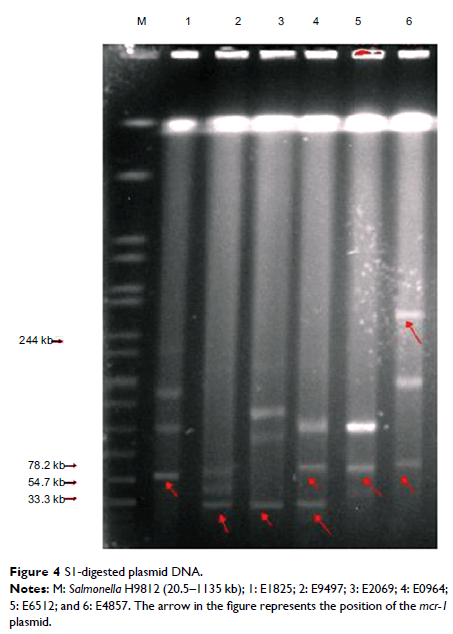108384
论文已发表
注册即可获取德孚的最新动态
IF 收录期刊
- 3.4 Breast Cancer (Dove Med Press)
- 3.2 Clin Epidemiol
- 2.6 Cancer Manag Res
- 2.9 Infect Drug Resist
- 3.7 Clin Interv Aging
- 5.1 Drug Des Dev Ther
- 3.1 Int J Chronic Obstr
- 6.6 Int J Nanomed
- 2.6 Int J Women's Health
- 2.9 Neuropsych Dis Treat
- 2.8 OncoTargets Ther
- 2.0 Patient Prefer Adher
- 2.2 Ther Clin Risk Manag
- 2.5 J Pain Res
- 3.0 Diabet Metab Synd Ob
- 3.2 Psychol Res Behav Ma
- 3.4 Nat Sci Sleep
- 1.8 Pharmgenomics Pers Med
- 2.0 Risk Manag Healthc Policy
- 4.1 J Inflamm Res
- 2.0 Int J Gen Med
- 3.4 J Hepatocell Carcinoma
- 3.0 J Asthma Allergy
- 2.2 Clin Cosmet Investig Dermatol
- 2.4 J Multidiscip Healthc

大肠杆菌中粘菌素抗性基因 mcr-1 的流行和分子特征: 中国大学医院临床感染分离株
Authors Cao L, Li X, Xu Y, Shen J
Received 27 February 2018
Accepted for publication 20 August 2018
Published 26 September 2018 Volume 2018:11 Pages 1597—1603
DOI https://doi.org/10.2147/IDR.S166726
Checked for plagiarism Yes
Review by Single-blind
Peer reviewers approved by Dr Cristina Weinberg
Peer reviewer comments 3
Editor who approved publication: Dr Joachim Wink
Background: Colistin has been considered as one of the most effective treatments in clinical infections, especially multidrug-resistant (MDR) bacteria-infected patients. The mcr-1 gene leads to polymyxin resistance in China. The present study investigated the prevalence of mcr-1 in a Chinese teaching hospital, and the molecular phenotypes of the positive strains were analyzed.
Methods: A total of 1,112 Escherichia coli strains were collected from a Chinese University Hospital from January 2015 to January 2016. The mcr-1 gene was detected by PCR. All positive specimens were subjected to susceptibility testing, clinical analysis, phylogenetic analysis, DNA Southern blot hybridization, and gene sequencing.
Results: Six (0.6%) strains of mcr-1 -positive E. coli were susceptible to imipenem, meropenem, and tigecycline, except for one that presented moderate levels of tigecycline resistance. The six isolates were resistant to cefotaxime and cefepime and divided into six types of sequences. These positive strains carried a total of three plasmids: approximately 33, 61, and >92 kb plasmids. All patients were eventually cured using different types of antibiotics and discharged.
Conclusion: The current study showed that the mcr-1 gene was responsible for the majority of colistin resistance in clinical isolates of E. coli . The gene can be transferred into plasmids containing other drug resistance genes by plasmid–DNA conjugation, which might cause severe consequences in drug-resistant strains. Thus, the widespread popularity of mcr-1 gene should be prevented.
Keywords: mcr-1 , plasmid, colistin, clinical infections
